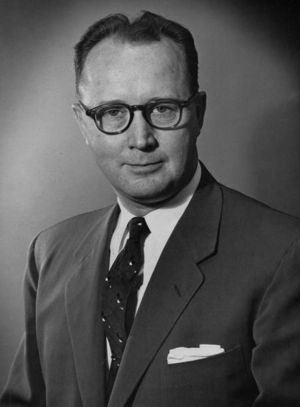Reynold B. Johnson
Biography
Reynold B. Johnson was a computer scientist at I.B.M. known for developing the first commercial magnetic hard disk drive.
Johnson was a graduate of the University of Minnesota, earning a degree in education. He began his career as a high school social science teacher. In 1932, he created an electromechanical device that automatically graded pencil-marked multiple-choice tests. These standardized testing machines have now become ubiquitous, but Johnson initially failed to convince I.B.M. to develop the idea. That changed in 1934, when the company decided to hire him as an engineer in its Columbia University and Endicott, New York, laboratories.
During his almost four decades at At I.B.M., Johnson was awarded over ninety patents, with numerous other ideas in the pipeline. For decades, he focused on improving methods of storing computer data. When Johnson began his engineering career, this process required the creation and reading of punch cards. In 1952, Johnson moved to the company’s San Jose laboratory, where he led a research team developing more efficient data storage and retrieval solutions.
The team’s experiments began with a rotating drum: a hollow cylinder with a magnetic head inside. The magnetic head read and wrote data on tracks on the cylinder’s surface. The team soon switched to using multiple magnetic disks, however, believing they would be more compact and less prone to malfunction.
In 1956, I.B.M. sold Johnson’s first disk drive to Crown Zellerbach. This drive was composed of fifty twenty-four inch-diameter double-sided aluminum magnetic disks. Although it weighed a ton, it could store just five megabytes of data.
Another product that won Johnson recognition was the Fisher-Price “Talk to Me Books.” He invented a microphonograph that allowed these award-winning toys to speak when children pointed to pictures or words in them.
He was awarded the National Medal of Technology in 1986. In 1992, the IEEE established the Reynold B. Johnson Information Storage Systems Award and it also presented the IEEE Reynold B. Johnson Data Storage Device Technology Award between 2004 and 2011.

